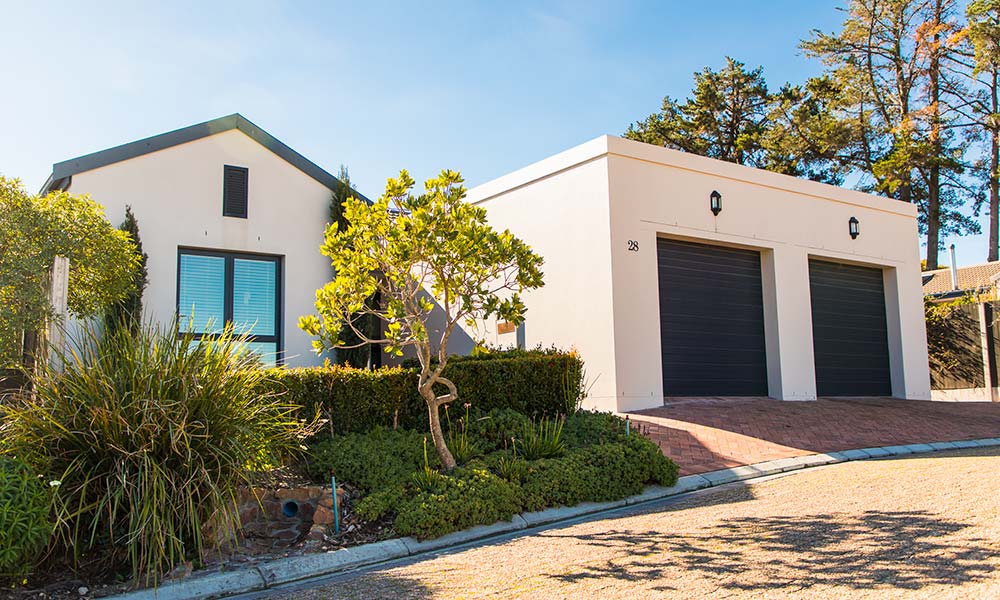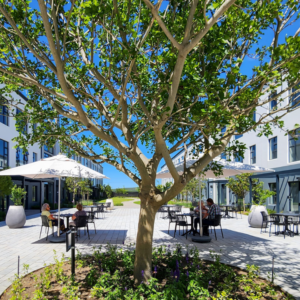
Life right versus sectional title for retirees
The term “life right” may seem unfamiliar to those outside of the retirement community. Far from climbing the property ladder, it could be considered the equivalent of finding a steady balance on the top rung.
What is a life right? Phil Wilson, Sales Director of Evergreen Lifestyle, a provider of retirement living in South Africa and a subsidiary of the Amdec Group, says it is an investment in a retirement development, which guarantees the holder a safe and secure home for the rest of their life.
Purchasing a life right rivals a traditional ‘bricks-and-mortar’ sectional title investment in that its primary objective is to offer a stress-free retirement lifestyle, without burdensome admin. Sectional title offers financial growth, but brings with it concerns such as special levies, bodies corporates and managing agents.
Wilson says the life right model is globally recognised for its distinct advantages, enabling residents to live active, independent, autonomous lives without the traditional burdens that come with owning a property outright.
With greater life expectancy than ever before, one of the biggest concerns worrying older people is whether they will outlive their assets. Sadly, even substantial retirement savings might not be enough to support a person who lives well into their 80s or 90s.
Wilson says this, of course, also adds increased pressure to access for housing for the elderly in South Africa, resulting in new retirement developments being constructed in many parts of the country to address the demand. Many of these developments now operate on the life rights basis.
“When a person makes the decision to move from the family home into a home for their retirement years, they face choices regarding what form of ownership to purchase. The purchase of a life right grants you and your partner the security of guaranteed lifetime occupation,” he says.
While any individual could purchase a full or sectional title, and own the entire property outright, they will then also be held accountable for all the responsibilities for maintenance of that property.
The life rights model, however, is ideal for older people who do not wish to take on that responsibility, and would prefer not to deal with various other issues linked to homeownership, such as insurance, security, etc.
“Purchasing a life right in a retirement village also boasts the additional benefits of medical and frail care services on the premises, as well as world-class hospitality and security – benefits which are reassuring later in life,” adds Wilson.
What are the core differences between a sectional title and a life right purchase?
While the cost of a sectional title property remains relatively fixed, determined by the size, location, and market value of the property, a life right is more flexible and can be tailored to fit the retiree’s budget.
But does a life right offer you bang for your buck? In terms of affordability, Wilson says yes. The purchase price of a life right is generally lower than that of a house or apartment of similar size in a comparable area. With freehold and sectional title properties, however, the buyer pays according to a market-related price.
Know your (life) rights
Other key differences include:
– The buyer of a sectional title property is liable for transfer duty, VAT and capital gains tax. These costs do not apply when purchasing a life right.
– Over and above monthly levies, sectional title residents are liable for special levies that cover large-scale renovations, refurbishments, and improvements to security, among other things. With a life right development, the developer is responsible for village maintenance.
– Sectional title residents are also liable for all costs relating to maintenance, insurance, and security costs, which are not applicable in a life rights development.
– The purchaser of a life right must plan for paying monthly levies in a retirement village, but this could apply equally to someone living in a home they own.
– Once a property is completed and sold, the developer has no obligation to remain invested in or maintain a sectional title development. With a life right village, the developer retains ownership of the property in perpetuity and therefore has both a responsibility and a vested interest in maintaining the development to the highest possible standards.
“A sectional title purchase offers no lifetime guarantee. If an older resident outlives their pension, they might find themselves in a position where they are forced to sell up and move. A life right guarantees a safe and secure home for the remainder of one’s natural life, with the added benefits of resort-style facilities, state-of-the-art security, a fully-managed and maintained environment, and health care facilities that typically include 24-hour nursing, recuperative and palliative care, and frail care,” explains Wilson.
“Ultimately, the life right delivers peace of mind and freedom from financial worry. With transparent and affordable levies, pricing tailored to fit your budget, and tenure guaranteed for life, the prospect of living longer is no longer cause for anxiety.”



